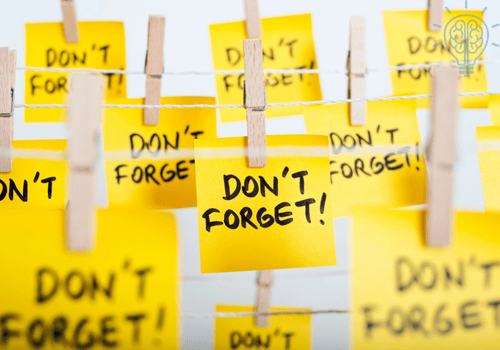A Puzzle for Many Parents
It’s one of the most bewildering experiences as a parent: seeing your incredibly bright child—so full of potential—seem to hit a wall. Despite their intelligence, they appear to avoid effort, leaving you wondering, Why won’t they just try? You’re not alone in this frustration, but what if the issue isn’t about effort at all? What if the problem isn’t laziness but something invisible working against them?
Let’s take a closer look at what might really be going on and explore a different lens for understanding your child’s behavior.
Reframing the Question: Why “Just Doesn’t Try” Misses the Mark
Saying a child “just doesn’t try” is like looking at a car that won’t start and assuming the driver forgot how to turn the key. In reality, the issue is likely deeper—something under the hood. Similarly, when kids avoid effort, it’s often not because they don’t care or lack ability. It’s because they’re struggling with executive functions: the brain’s system for managing tasks, emotions, and behaviors.
Instead of focusing on effort, let’s shift the question to: What’s preventing them from trying?
Executive Functions: The Invisible Engine Behind Success
Executive functions are like the brain’s orchestra conductor, keeping everything in harmony. When these skills are underdeveloped or out of sync, even the brightest children can struggle to start playing their “music.” Here’s how specific executive functions might be at play:
Task Initiation: Getting Out of Neutral
Imagine a car stuck in neutral: the engine runs, the wheels are ready, but it won’t move. Task initiation is the ability to begin a task, and for some kids, this “engine” doesn’t kick in easily. They might stare at their homework, not because they’re unwilling, but because they don’t know how to start.
It’s like standing at the base of a mountain with no map, unsure where the trail begins. Starting feels overwhelming, so they avoid it.
Working Memory: Holding on to the “How”
Working memory is like your mental whiteboard, where you jot down information while working through a task. For kids who struggle with this, that whiteboard feels slippery—ideas and steps fall off before they can act on them. They may seem to “forget” what to do, even when they understood it moments ago.
It’s like trying to carry a handful of water across a room. No matter how hard they try, much of it spills before they reach the other side.
Goal-Directed Persistence: Keeping Their Eyes on the Prize
Bright kids often have big ideas but struggle to stick with tasks long enough to finish. This isn’t a lack of motivation; it’s more likely a challenge with goal-directed persistence, a difficulty maintaining focus when distractions or frustrations arise.
Think of it as trying to carry a candle through a windy path. Without the tools to shield it, the flame blows out before they reach their destination.
Practical Steps to Support Your Child
Recognizing the role of executive functions is empowering—it shifts the focus from blame to solutions. Here’s how you can help:
Break the Task into Bite-Sized Steps
For kids who feel overwhelmed, even starting can feel impossible. Help them break the task into smaller, manageable pieces. For instance:
- Instead of “write an essay,” start with “open your laptop.”
- Next, “write down three ideas for the topic.”
Each micro-step builds momentum, like adding kindling to a fire.
Use Visual Timers and Checklists
Visual tools create a sense of structure and help kids stay on track. Timers (like a simple sand timer or digital app) can turn “start your homework” into a race against the clock, making the task feel more achievable.
Checklists also work wonders. Imagine giving your child a clear map for climbing that daunting mountain, one step at a time.
Build a “Launch Pad” Routine
Create a consistent starting ritual for homework or chores. For example:
- Clear the workspace together.
- Set out the materials they need.
- Use encouraging phrases like, “What’s the first step we can take together?”
The familiarity of a routine can ease their transition into action.
Celebrate the Process, Not Just the Outcome
Children who struggle with task initiation often feel they’re “bad” at starting or completing things. Shift the focus to their effort:
- Instead of saying, “Great job finishing your homework,” say, “I’m really proud of how you got started so quickly tonight.”
- Acknowledge the steps they took: “You planned your project well—that’s a big deal!”
This builds their confidence in tackling future challenges.
What Does Success Look Like? A Real-World Example
Let’s meet Ethan. Ethan is a 12-year-old who excels at math but freezes when asked to complete writing assignments. His parents used to think he wasn’t trying hard enough, but after learning about executive functions, they realized he struggled with task initiation. Together, they implemented small steps:
- Ethan’s mom helped him create a checklist for each writing task.
- They used a timer, giving him 10 minutes to brainstorm ideas.
- After completing small chunks, Ethan earned praise for his effort, not just the final product.
Within weeks, Ethan’s confidence grew, and he began initiating tasks with less parental intervention. His parents saw his true potential shine through.
The Hopeful Truth: It’s Not Laziness—It’s a Skill Gap
Your child isn’t “just not trying.” They’re likely facing unseen barriers that make starting tasks feel like climbing a mountain without gear. By understanding the role of executive functions, you can give them the tools they need to succeed—and start viewing their struggles not as a lack of effort, but as opportunities for growth.
A Gentle Next Step: Coaching Can Help
If these strategies help, fantastic! But if your child continues to struggle, know that there’s support. Executive function coaching provides tailored solutions to help kids build skills like task initiation, planning, and goal persistence.
Interested in learning more? Contact us today for a free discovery call—we’re here to help you and your child thrive.




